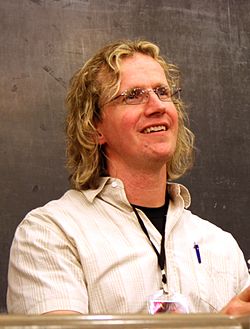IKEA flat-pack fantasy: oversized, overhyped, and assembled without care. This is romantasy dressed in graduation robes it never earned. What we’ve got here is all bulk, no ballast. It’s epic only in word count, not in vision.
I didn't know anything about the book before reading it. I just heard it was a popular fantasy novel. That's allowed me to go in with an open mind and judge the book as I would any other. Based on the cover, I must admit I was expecting a dragon’s roar, but what I got instead was a long, weary yawn.
The prose uses choppy short sentences with faux-poetic minimalism that comes across as cheap and overused. It is not fantastical. Being just shy of 900 pages, instead of immersive fantasy details, it's full of mundane padding with characters eating breakfast and getting dressed.
The book has extremely weak male characters, both literally and in character development, and the worldbuilding is extremely flat, only going as far to flirt with a fantasy world amongst pages of the banal. The balance of attention to this work of fantasy feels anything but epic, drowned in the ordinary. Alongside the choppy sentences, Shannon injects an internal narration, which I feel is a lazy way to provide blunt clarity to her prose and does nothing to provide us with immersion and escapism that any good fantasy work should offer.
A consensus is that Orange Tree is a feminist successor to Tolkien's LOTR. We had a philologist at the helm building languages from scratch, pouring in Anglo-Saxon poetics, Norse saga structures, Catholic theology, medieval scholasticism and his WW1 trench experiences. Every song, map, poem, every invented name has roots in the mastery of his scholarship. The form (archaism, shifting registers, embedded poetry) matches the substance (myth, faith, loss, redemption).
To set that alongside Shannon’s book — with its short choppy sentences, pedestrian filler chapters, and flat characterisation — is almost obscene. It’s like putting Tolkien’s cathedral next to a prefabricated shed and calling them the same because they both have a roof.
Marketing loves to crown the ‘new Tolkien,’ but these comparisons are hollow. We had language, myth, theology, and form woven together. Without that depth, you don’t get a new Tolkien... you get pastiche wearing a crown it hasn’t earned, much like all the fantasy authors post-Tolkien that thought they could eat from the same bowl.
There is no doubt in my mind that many an author has been sent back to the editor with a manuscript this large. To strip the mundane, to provide a higher concentration of pacing and narrative, to hone and sculpt the story. This book got a free pass. It sees itself as a tapestry, but it’s just yards of plain cloth stitched together without pattern or colour.
Orange Tree is a 900 page banquet where every course is porridge: filling, repetitive, and never worth the fanfare. It’s twice the length it should be, and half the novel it needed to be.




